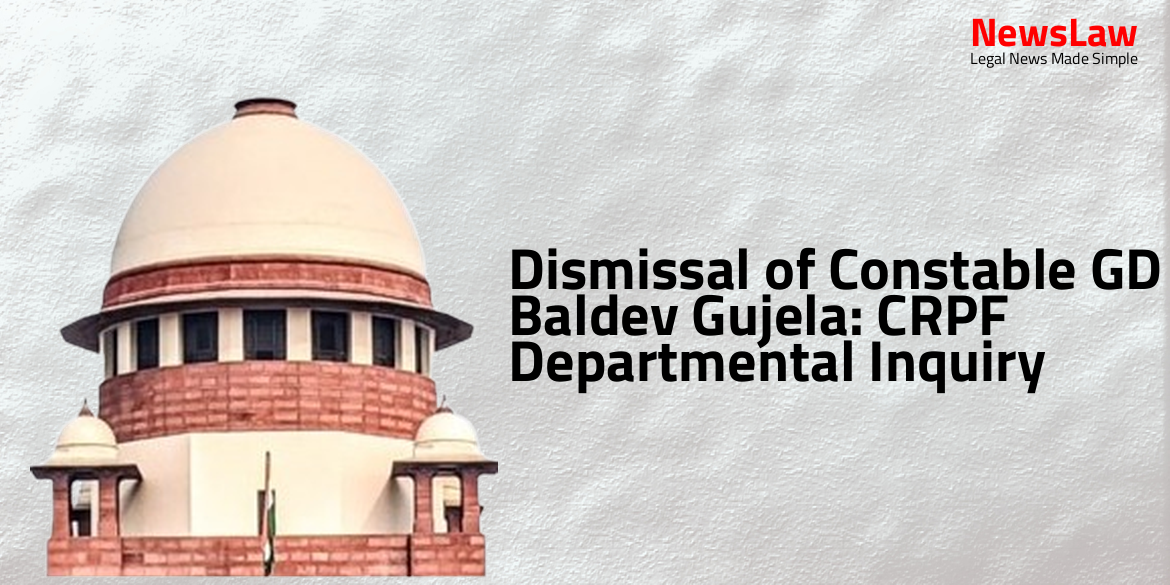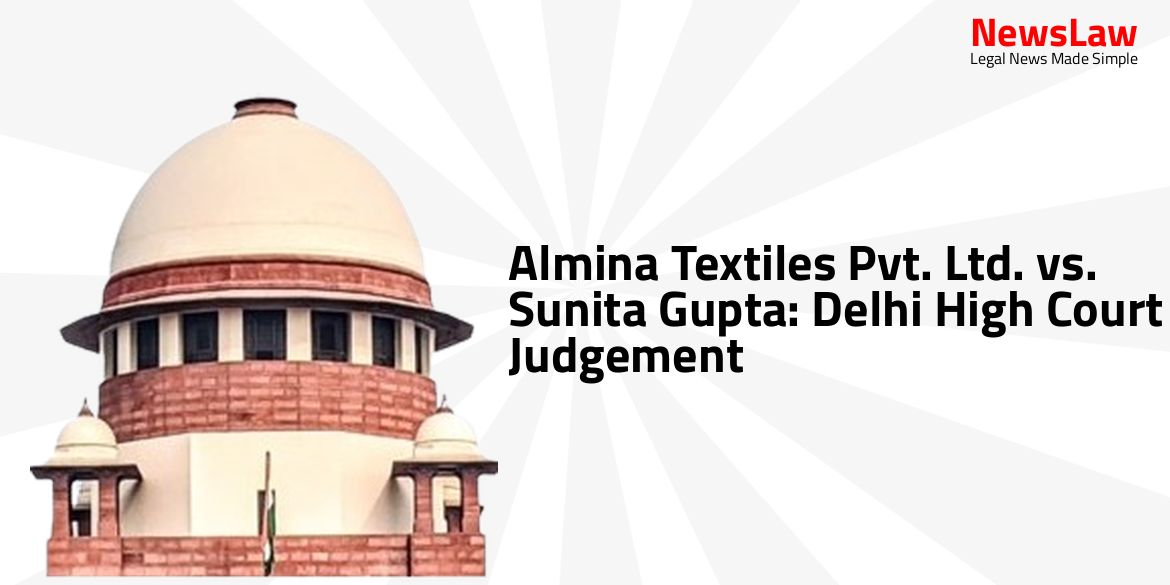In a significant case concerning land dispute resolution, the Supreme Court of India delivered a crucial judgment regarding specific performance. The case involved a dispute between two parties over a property agreement, with one party seeking specific performance. Find out more about the details of the case and the Supreme Court’s ruling on this matter.
Facts
- An agreement for sale was executed between the appellant and the respondent for House no.3343/3 on 16.03.1988.
- Various sums of money were paid by the appellant to the respondent.
- The appellant cancelled the agreement and confiscated the amount paid due to lapses on the respondent’s part.
- Another agreement was made on 20.06.1988 for sale deed execution after property mortgage release.
- Appellant cancelled the agreement on 01.09.1989 and forfeited earnest money.
- Appellant notified the respondent on 27.07.1989 about redemption and sale deed execution.
- Respondent disputed redemption requiring proof.
- Appellant finally intimated respondent after mortgage redemption for payment and sale deed execution.
- Plaintiff filed suit for specific performance which was decreed, and defendant’s appeals were dismissed.
- Defendant lodged present appeal aggrieved by the decision to decree the suit.
Also Read: Judicial Standards and Compulsory Retirement Case: Supreme Court of India Judgment
Arguments
- Petitioner gave due intimation to the respondent after redemption of the mortgage as per the agreement.
- Respondent raised frivolous objections and failed to pay the balance consideration amount and execute the sale deed.
- Respondent did not prove readiness and willingness to perform obligations under the agreement for sale.
- PW-1 was a power of attorney holder from the respondent.
- The respondent claimed that the appellant did not provide proper intimation regarding the redemption of the suit property
- The respondent was ready to fulfill his obligations under the agreement but was hindered by the appellant’s conduct
- The appellant did not provide correct and relevant information as per the agreement
- It is acknowledged that the suit property was redeemed from mortgage on 04.07.1989
Also Read: Supreme Court Judgement in a Criminal Case
Analysis
- The witness was unaware of the events leading up to the cancellation of the agreement on 01.09.1989 and denied knowledge of the release deed and notice dated 27.07.1989.
- The respondent insisted on a no-dues certificate and denied receiving the release deed, later giving power of attorney to PW-1 on 02.11.1989.
- No evidence was presented on behalf of the respondent regarding his readiness and willingness to execute the agreement, essential for specific performance relief.
- The witness’s lack of knowledge and competence to provide evidence on behalf of the respondent weakened the case for specific performance.
- The original suit filed by the Plaintiff for specific performance based on a non-existing agreement was deemed unsustainable in law due to lack of evidence and readiness from the respondent.
- In the case of Sikandar, the failure of the respondent to appear in the witness box raises an adverse presumption against him.
- Referring to Vidhyadhar v. Manikrao, it was noted that when a party does not appear in the witness box, a presumption arises that the case set up by him is not correct.
- In Janki Vashdeo, it was held that a power of attorney holder can depose on behalf of the principal only for acts done in pursuance of the power, not for acts done by the principal directly.
- The power of attorney holder cannot depose for the principal in matters that only the principal has personal knowledge of and can be cross-examined on.
- Specific performance is discretionary in nature
- Respondent did not establish his case for grant of such relief
- High Court’s conclusions on readiness and willingness of the respondent and lack of intimation by the appellant deemed unsustainable
Also Read: Land Ownership Dispute: Supreme Court Judgment on Correcting Revenue Records
Decision
- Unable to sustain the impugned orders under appeal
- Impugned orders set aside
- Appeals allowed
Case Title: MOHINDER KAUR Vs. SANT PAUL SINGH
Case Number: C.A. No.-002869-002870 / 2010



